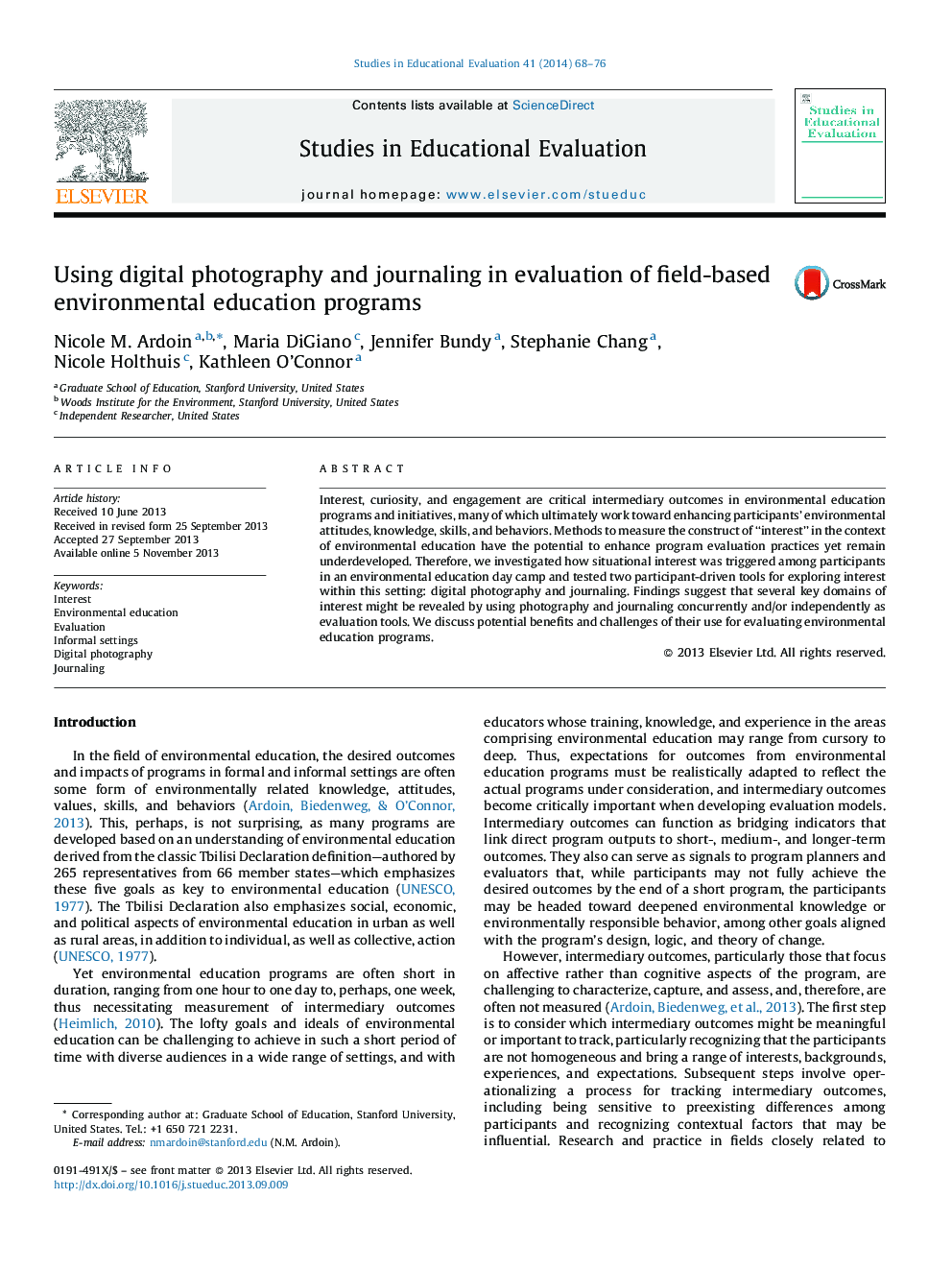| Article ID | Journal | Published Year | Pages | File Type |
|---|---|---|---|---|
| 372644 | Studies in Educational Evaluation | 2014 | 9 Pages |
•Interest is a key intermediary outcome in environmental education (EE) programs, yet tracking tools are underdeveloped.•This study piloted participant-driven tools to assess interest as an intermediary outcome of EE in informal settings.•Findings demonstrated an array of triggers of situational interest, including non-human animals and social interactions.•Embedded tools are promising for evaluating interest, yet challenges remain to implementation, replication, and validity.
Interest, curiosity, and engagement are critical intermediary outcomes in environmental education programs and initiatives, many of which ultimately work toward enhancing participants’ environmental attitudes, knowledge, skills, and behaviors. Methods to measure the construct of “interest” in the context of environmental education have the potential to enhance program evaluation practices yet remain underdeveloped. Therefore, we investigated how situational interest was triggered among participants in an environmental education day camp and tested two participant-driven tools for exploring interest within this setting: digital photography and journaling. Findings suggest that several key domains of interest might be revealed by using photography and journaling concurrently and/or independently as evaluation tools. We discuss potential benefits and challenges of their use for evaluating environmental education programs.
